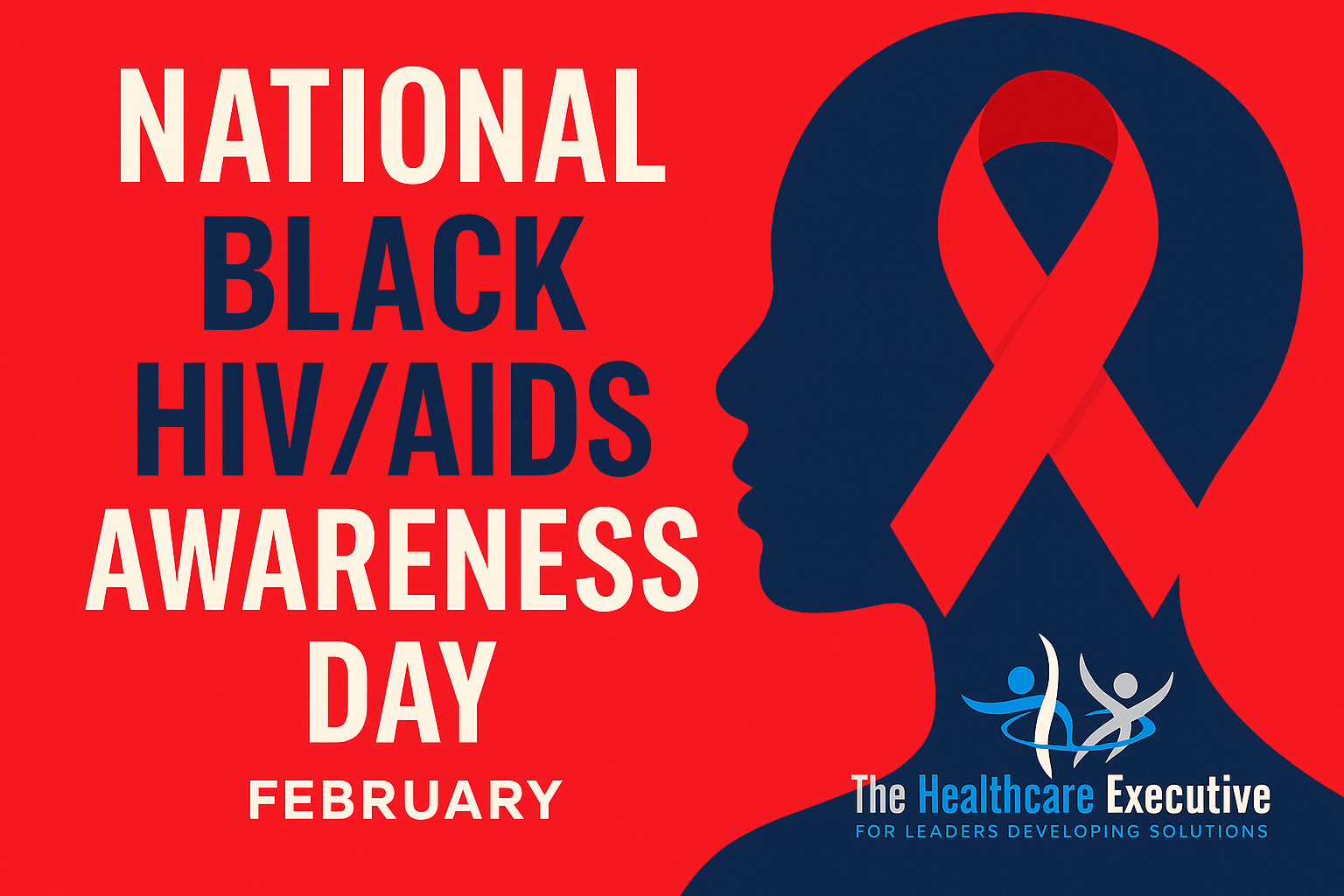National Black HIV/AIDS Awareness Day 2025: Advancing Health Equity in Black Communities

- Posted by Greg Wahlstrom, MBA, HCM
- Posted in Health Observance Calendar
How Healthcare Leaders Can Champion HIV/AIDS Awareness and Prevention
Published: February 7, 2025
On February 7, 2025, communities across the nation will observe National Black HIV/AIDS Awareness Day (NBHAAD), a day dedicated to raising awareness about the impact of HIV/AIDS on Black communities. This year’s theme, “Engage, Educate, Empower: Uniting to End HIV/AIDS in Black Communities”, underscores the importance of community involvement in combating this epidemic. Healthcare leaders play a vital role in amplifying this message, fostering environments that support education, prevention, and equitable care. By actively participating in NBHAAD, healthcare organizations can demonstrate their commitment to addressing health disparities and inspire others to take action. The visual impact of community-wide health events serves as a powerful reminder of the importance of proactive health measures. Moreover, it provides an opportunity to engage with the community, share valuable information, and encourage proactive health behaviors. Through coordinated efforts, we can make significant strides in reducing HIV/AIDS disparities among Black communities. Let this day be a catalyst for ongoing initiatives aimed at improving health equity for all.
Despite advancements in prevention and treatment, Black individuals in the United States continue to be diagnosed with HIV at higher rates compared to other racial and ethnic groups. According to AIDSVu, Black people accounted for 39% of people living with HIV and 38% of new HIV diagnoses in the U.S. in 2022, despite only representing 12% of the U.S. population. Healthcare executives can further this mission by integrating HIV/AIDS education into community outreach programs and supporting policies that promote health equity. Implementing community-based programs that encourage regular testing and proper education can create a culture of health consciousness. Moreover, supporting research and funding for HIV/AIDS prevention and treatment can lead to advancements in care strategies. Collaborations with local businesses and media can also amplify the campaign’s reach, ensuring that the message of health equity resonates throughout the community. By leveraging their platforms, executives can inspire action, drive change, and ultimately contribute to the reduction of HIV/AIDS disparities among Black communities. As we observe this day, let it serve as a reminder of the collective responsibility to prioritize and advocate for health equity.
Participation in NBHAAD extends beyond acknowledging the day. Healthcare organizations can host educational events, provide HIV testing, and disseminate informational materials to staff and patients. These activities not only raise awareness but also empower individuals to take control of their health. Engaging with the community through social media campaigns, workshops, and seminars can further spread the message. Encouraging employees to share their personal stories related to HIV/AIDS can foster a supportive environment. Additionally, recognizing and celebrating volunteers and participants can provide motivation for others. By creating a comprehensive approach to health education, healthcare organizations can make a lasting impact. Let us use this day as an opportunity to reinforce our commitment to combating HIV/AIDS and promoting wellness among Black communities.
In addition to public-facing initiatives, internal policies should reflect a commitment to health equity. Implementing workplace wellness programs that encourage regular health check-ups and proper education can create a culture of health consciousness. Moreover, supporting research and funding for HIV/AIDS prevention and treatment can lead to advancements in care strategies. Collaborations with local businesses and media can also amplify the campaign’s reach, ensuring that the message of health equity resonates throughout the community. By leveraging their platforms, executives can inspire action, drive change, and ultimately contribute to the reduction of HIV/AIDS disparities among Black communities. As we observe this day, let it serve as a reminder of the collective responsibility to prioritize and advocate for health equity. Through coordinated efforts, we can make significant strides in reducing the prevalence of HIV/AIDS among Black communities. Let this day be a catalyst for ongoing initiatives aimed at improving health equity for all.
Discover More on Health Equity Initiatives
For insights on building resilient healthcare systems and promoting equity, read our post on trauma-informed leadership strategies for 2025.
Internal Links
- Green Hospitals: Leading the Way in Climate-Conscious Healthcare
- Rebuilding Trust in U.S. Healthcare: A Leadership Blueprint
